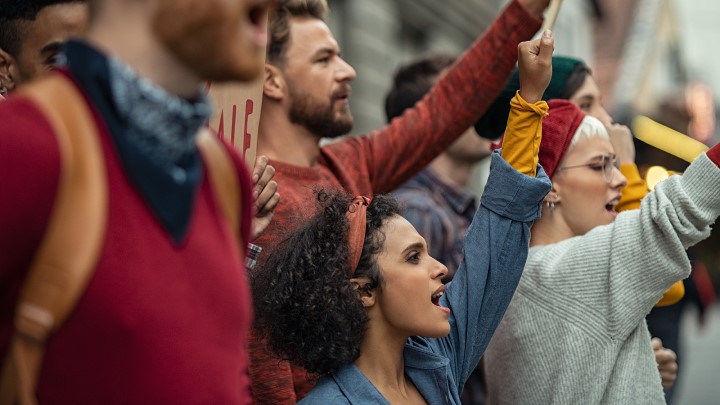Say what you will about the challenges faced by retailers recently, it’s clear that the last few years have also had a disproportionate impact on workers. Whether being locked down and unable to work, being let go at the height of the pandemic to keep costs down, or being monitored through surveillance technology while working from home, many workers have become disillusioned with the nature of employment in the retail industry, compounded by years of underpayment and harassment scandals
als.
However, as the industry now grapples with a very real labour shortage, it’s fair to say that the power balance has shifted.
Across the globe, workers are beginning to stand up to their employers: Starbucks workers successfully unionised over 260 of its US locations earlier this year, while Amazon warehouse workers organised strikes across the globe for better conditions, despite the business’ best efforts to bust any union activity.
Even efforts to placate union pushes with improved conditions have fallen short in many cases, with Australian Apple workers recently voting down a new pay and benefits deal proposed by the tech giant, and signalling further strikes to come.
The bump in high-profile unionisation comes after decades of falling union membership, with governments and businesses having put ‘obstacles’ in the way of collective action, according to Retail and Fast Food Workers Union secretary Josh Cullinan.
“Very many large businesses have been failing to provide workers secure jobs, living wages and fair conditions,” Cullinan told Inside Retail.
“Businesses have been able to exploit insecurely employed workers on minimum wages for far too long.”
Why now?
It shouldn’t come as much of a surprise that union activity is on the rise. After a decade of stalled wage growth and booming corporate profits, and the beginning of a cost-of-living crisis, workers are demanding better conditions and stability.
“For many years, if not a decade or more, it has been an employer’s market,” Ilona Charles, founder of HR firm Shilo People, explained to Inside Retail.
“Many employers have made significant profits over this time with little change in standards or pay for employees. Globally, employees are feeling tired, underpaid and taken advantage of, whilst they see large companies and the people who run them increasing their wealth exponentially.”
According to Charles, over the past decade, workers have been subject to technology that allows them to be ‘on call 24/7’ and the push for always-improving productivity, with nothing to show for themselves.
In fact, the Covid-19 pandemic highlighted the significant toll that this always-on approach to work was having on their personal relationships and overall happiness.
“Employees have seen the relative benefits of increased flexibility in the way they perform their work, improved balance between work and home, less commute time, and therefore less cost both from a monetary perspective and impact on family/life perspective,” Charles said.
“In addition, there is a global shortage of talent. This is slowly improving the prospects of wage increases, but nowhere near to the extent it needs to to keep up with inflation. Globally, inflation has skyrocketed, and wages are a long way off keeping pace.”
That access to technology goes both ways, however, and workers are now able to easily communicate, collaborate, and corroborate their experiences –which may inspire some to take collective action.
“Modern day furphy”
In an ideal world, businesses and the unions representing their workers would be able to work constructively together to provide the best outcome – however, until unions and businesses come to the table with equal power, this is unlikely to happen, said Cullinan.
“It’s a modern day furphy for businesses to ‘work constructively’ with unions,” Cullinan told Inside Retail.
“Until retail and fast food workers are sitting at the table on an equal power footing with employers the relationship is exploitative – not constructive.”
Cullinan said that the rising interest in unionisation and dwindling talent pool is a result of business’ focus on profit, as well as the unsafe work practices that some businesses are alleged to have encouraged during the pandemic.
“Workers had a very acute opportunity to understand the value employers place on their lives and the lives of their loved ones through the pandemic,” Cullinan said.
“The major retailers and fast food companies demanded workers front in public-facing roles as ‘essential workers’, all the while casualising their jobs and paying poverty wages. Workers saw all this – they experienced it.”







